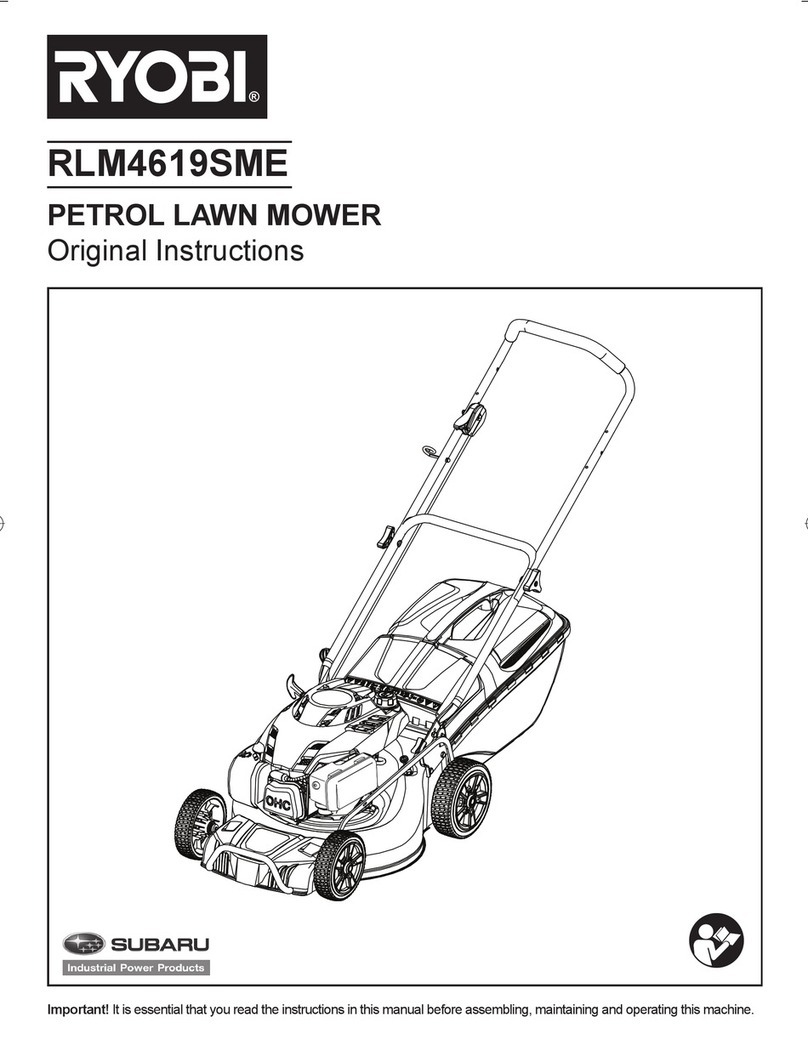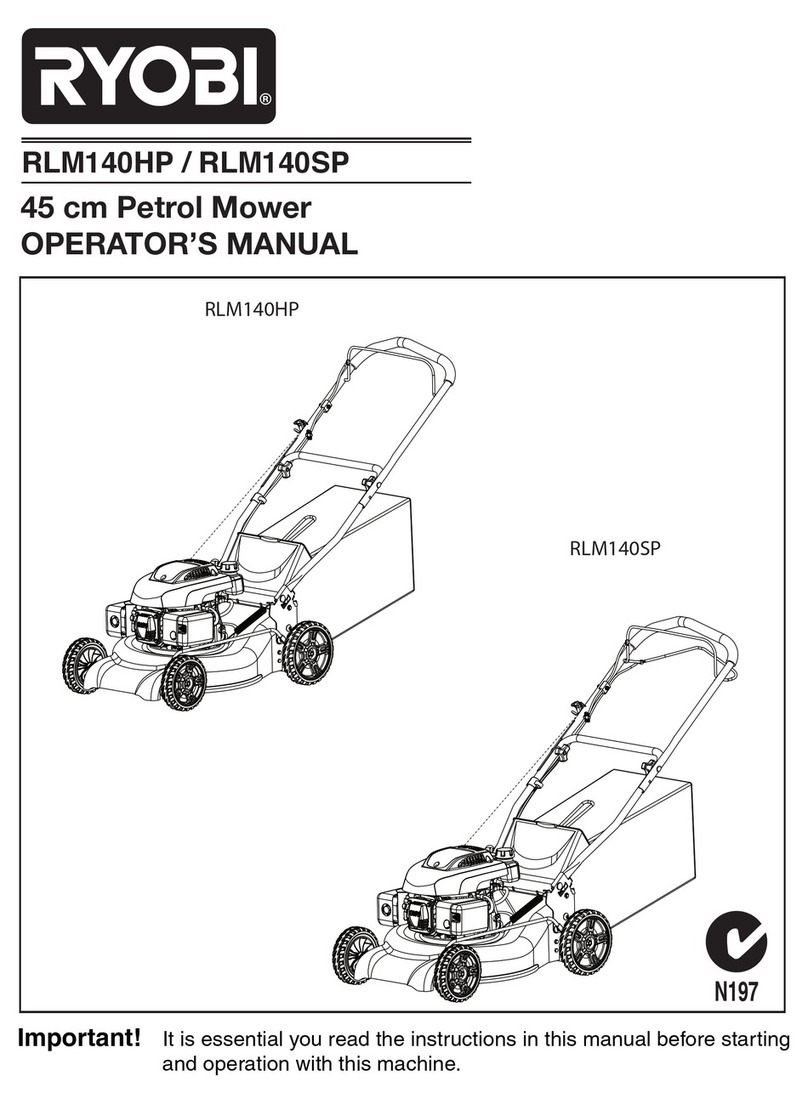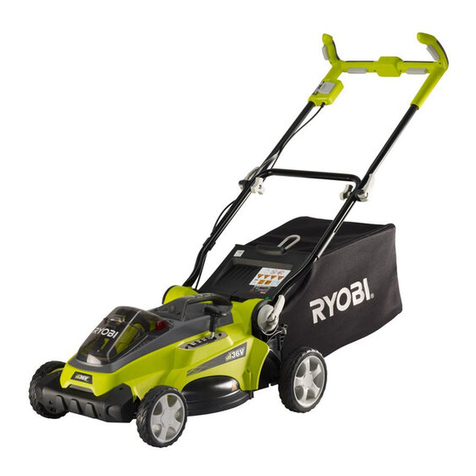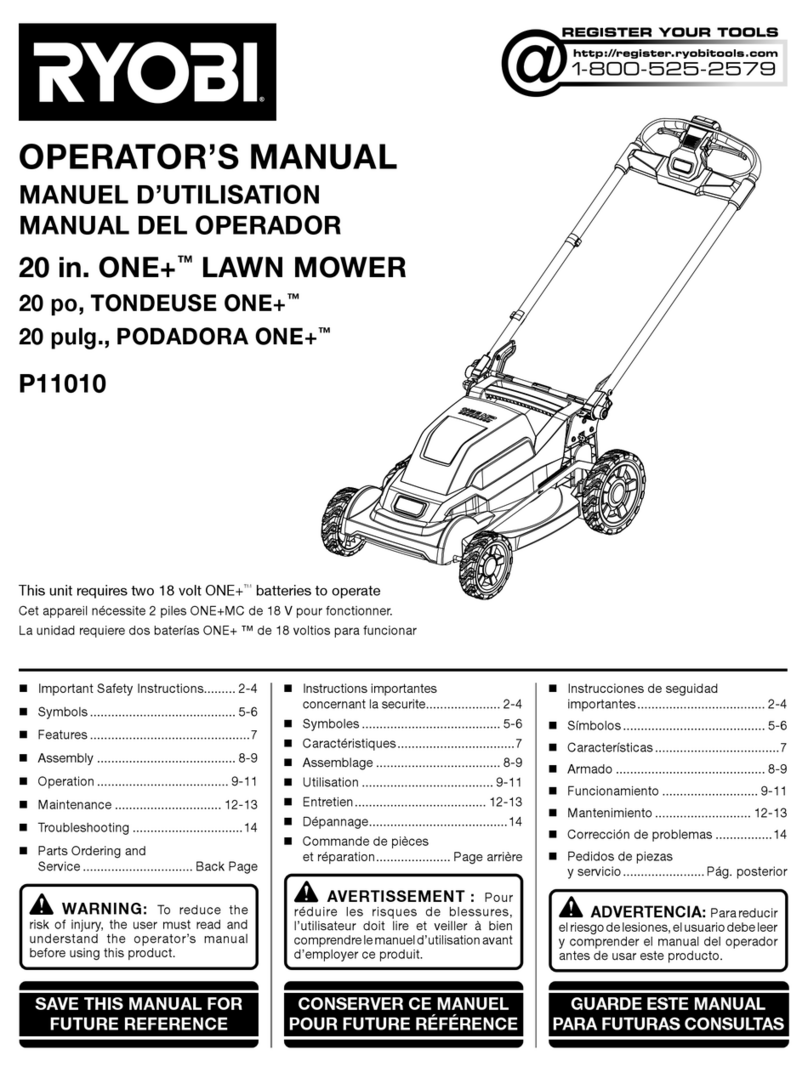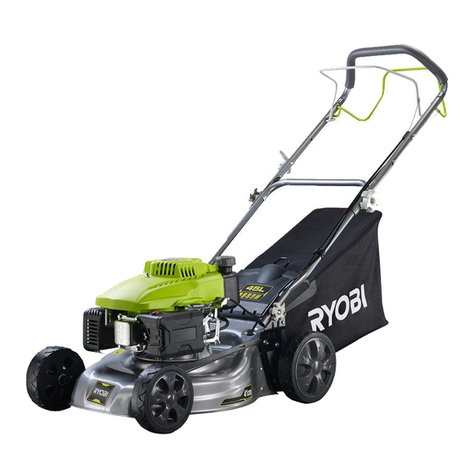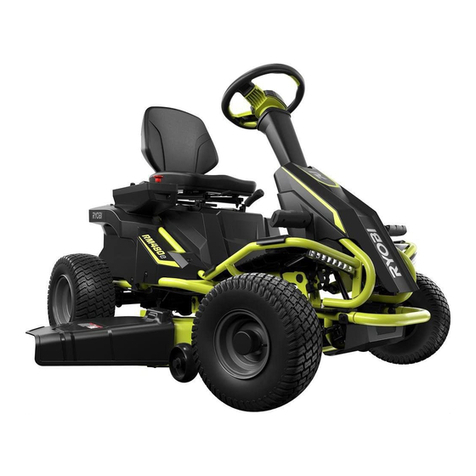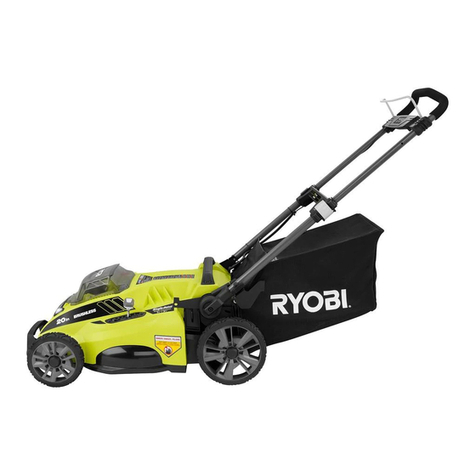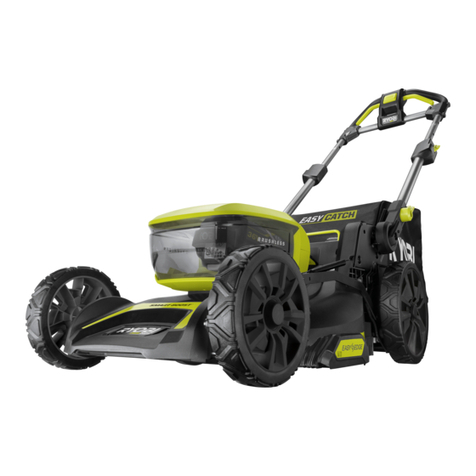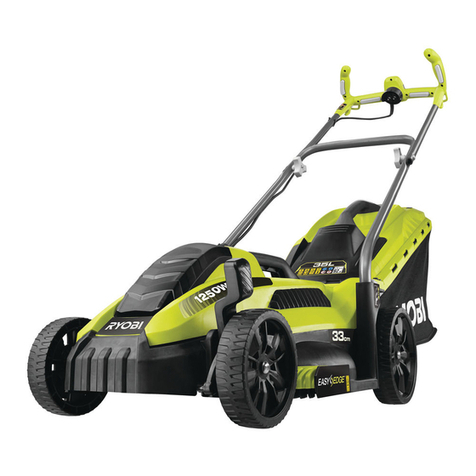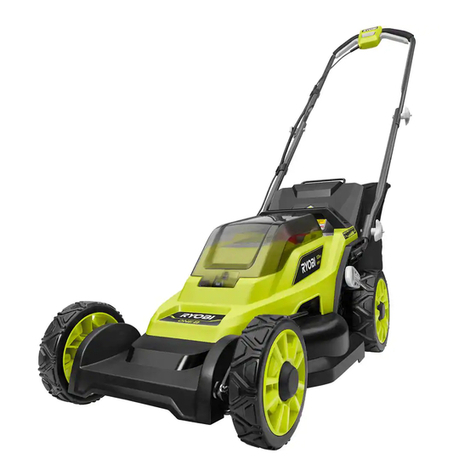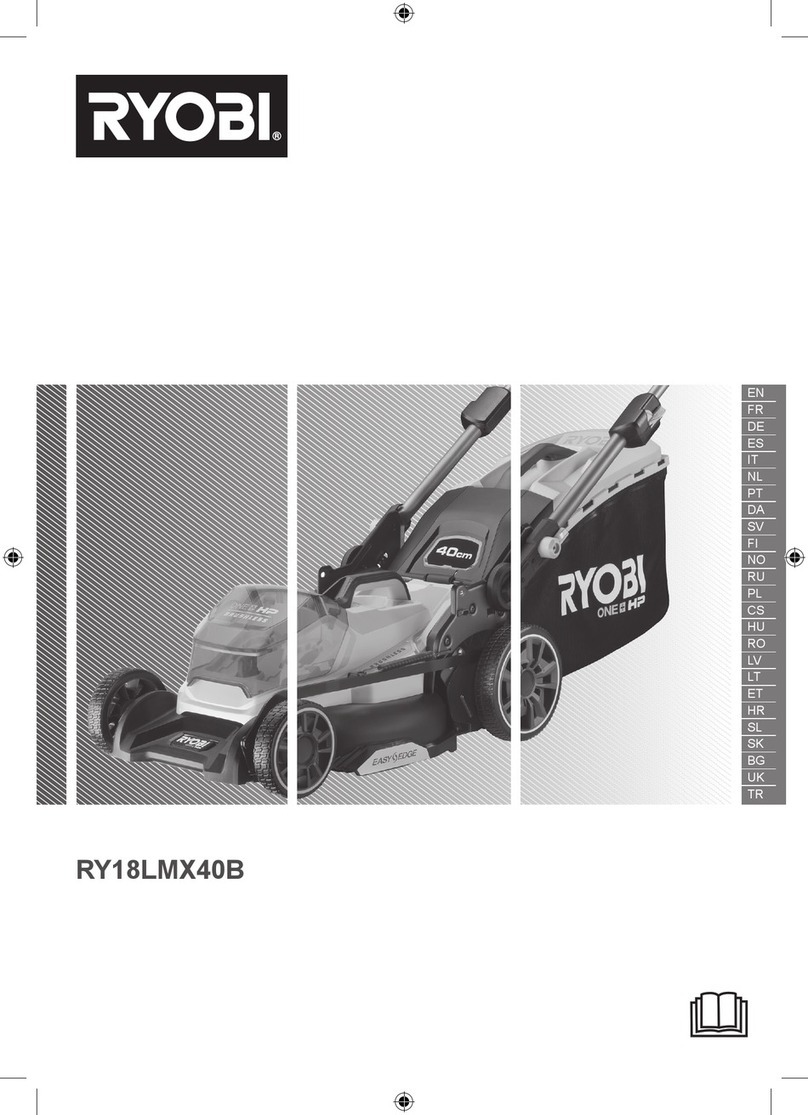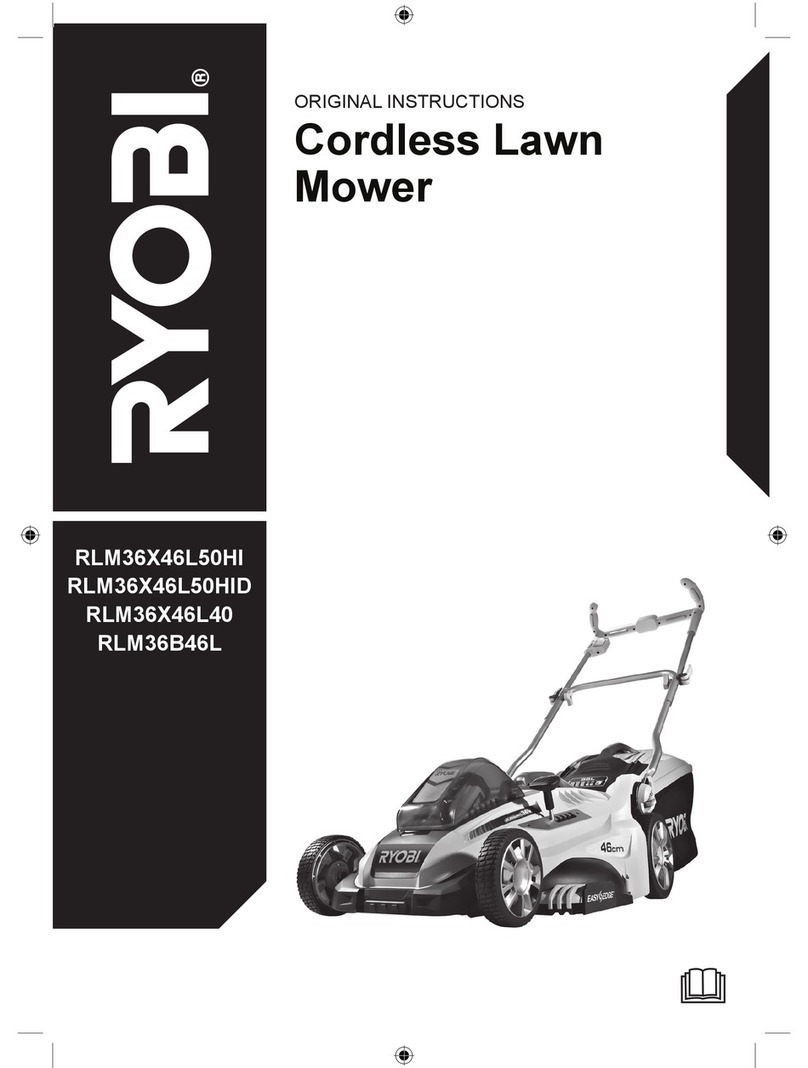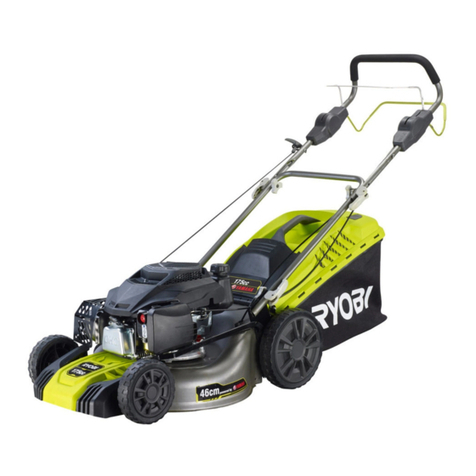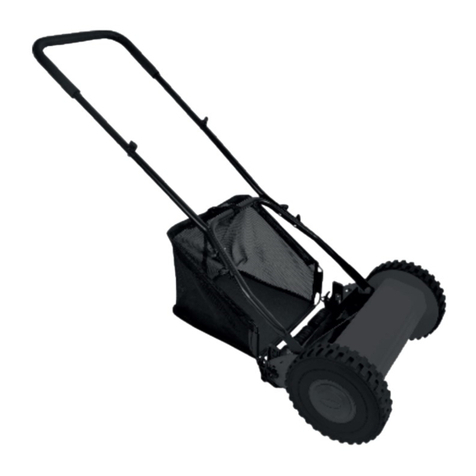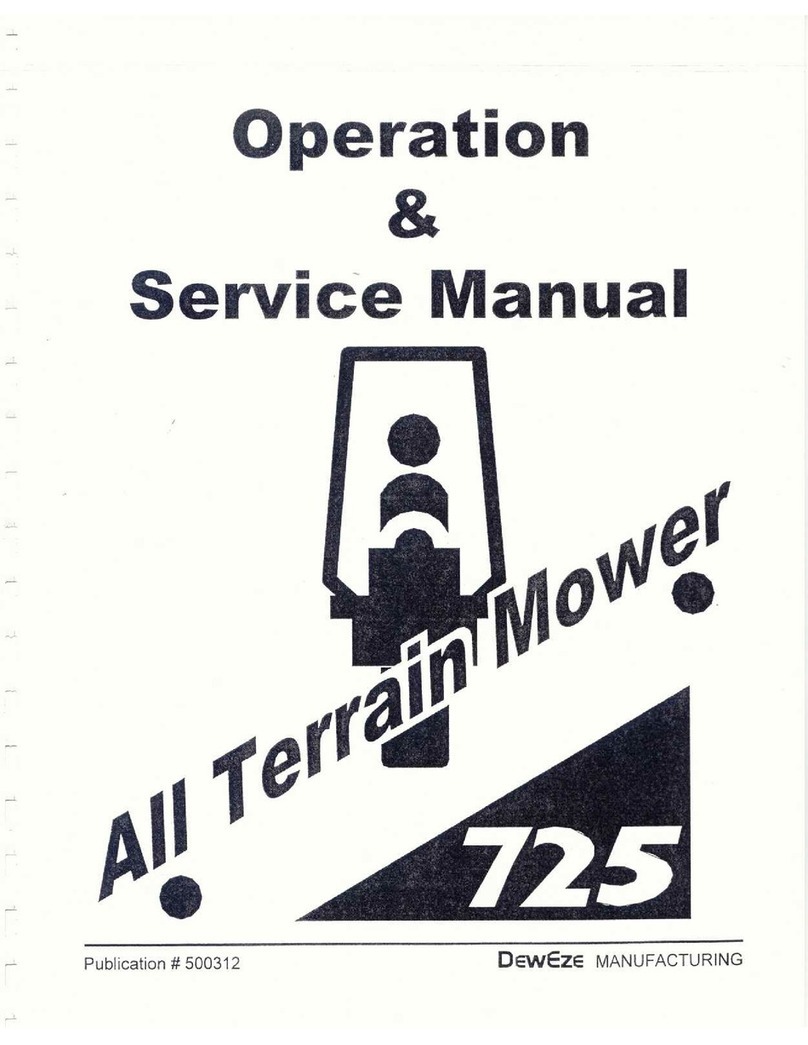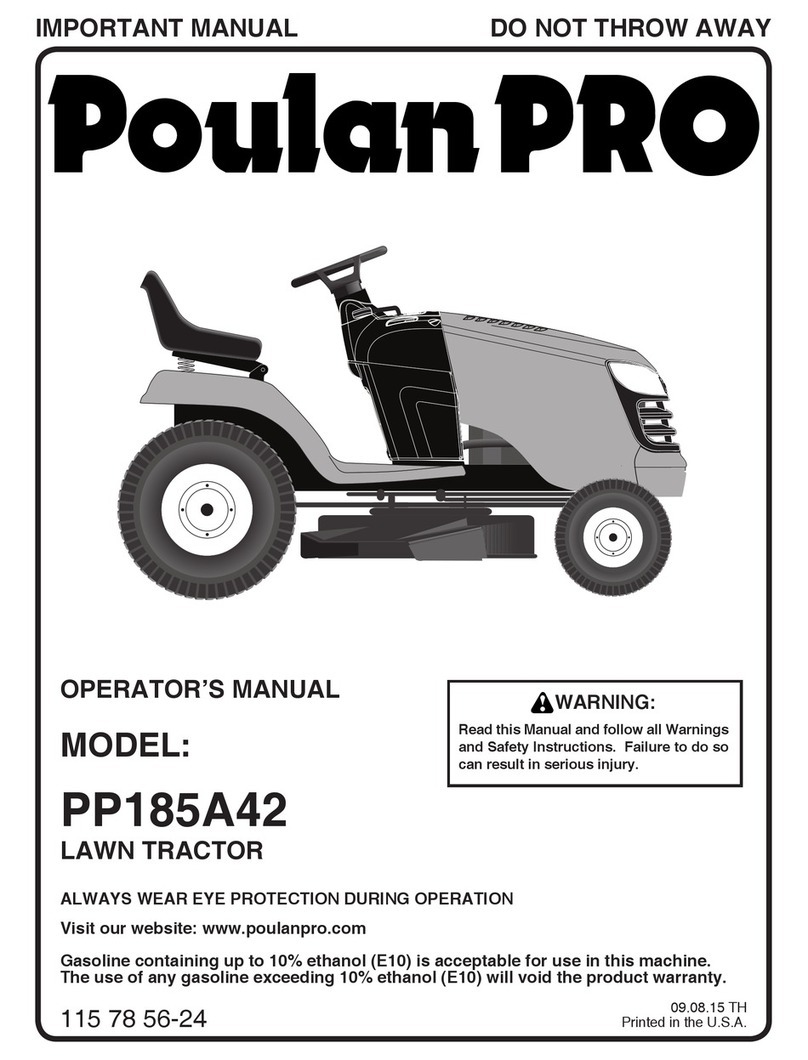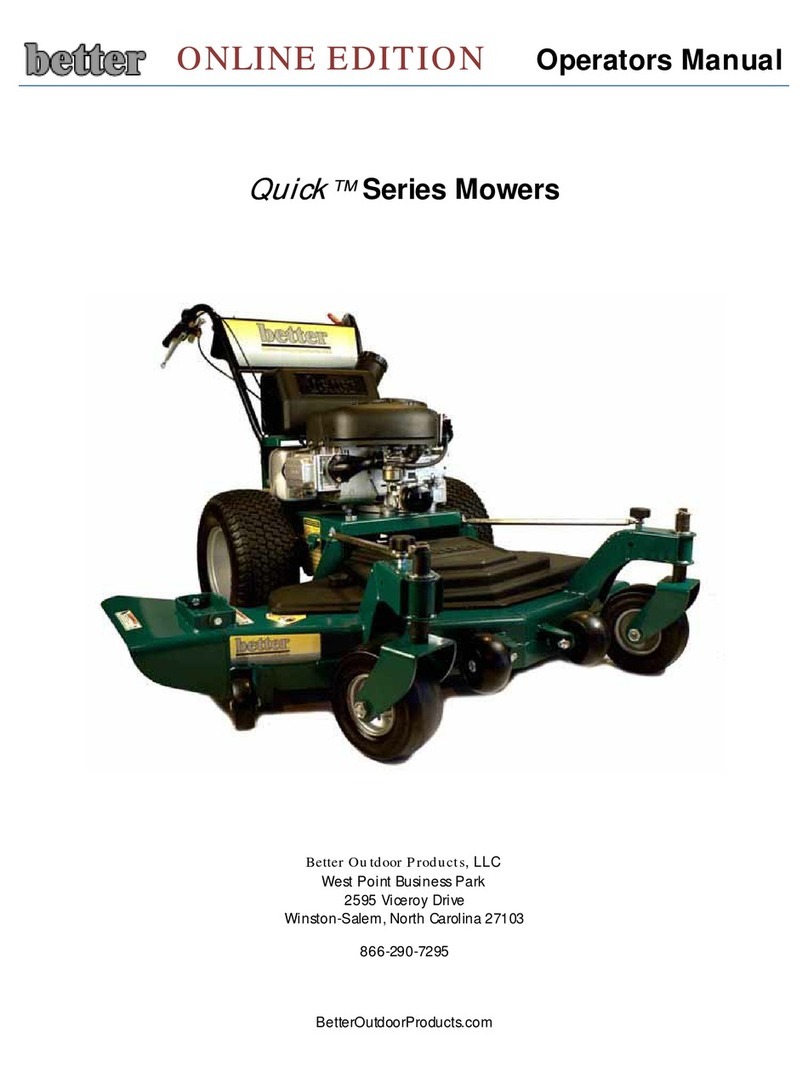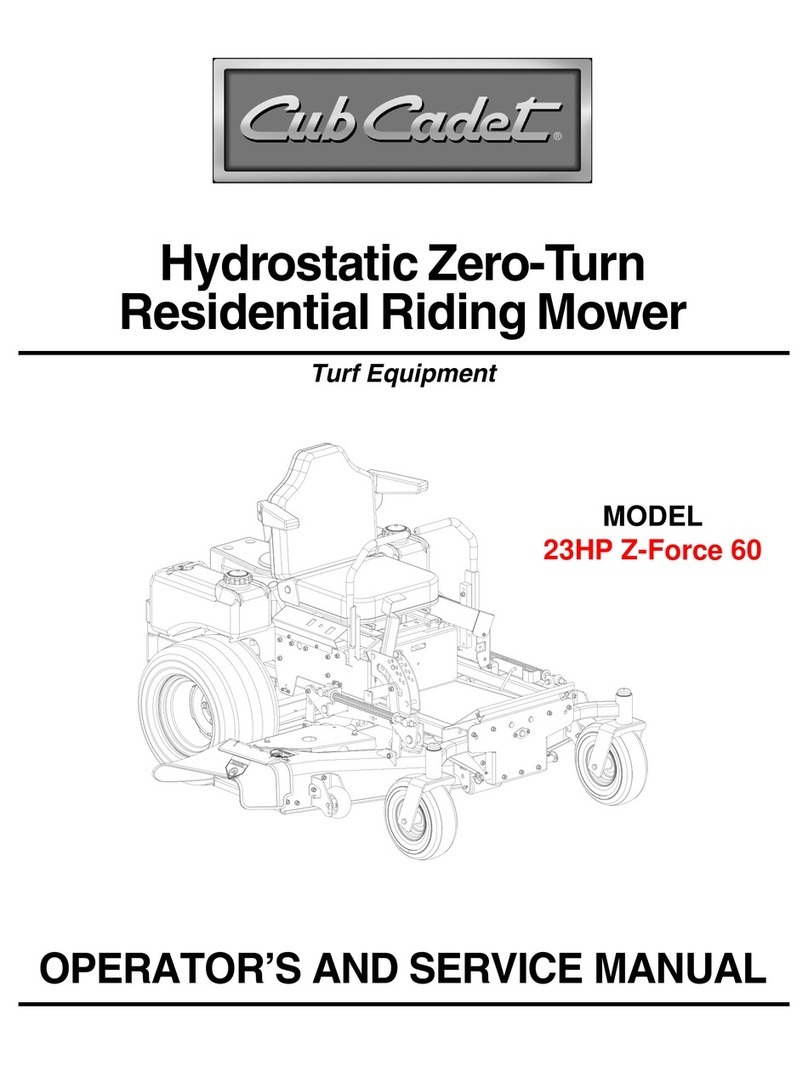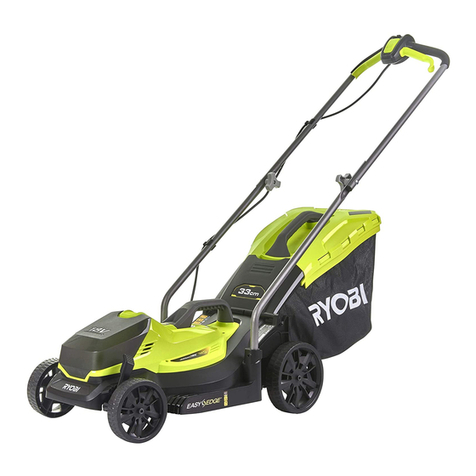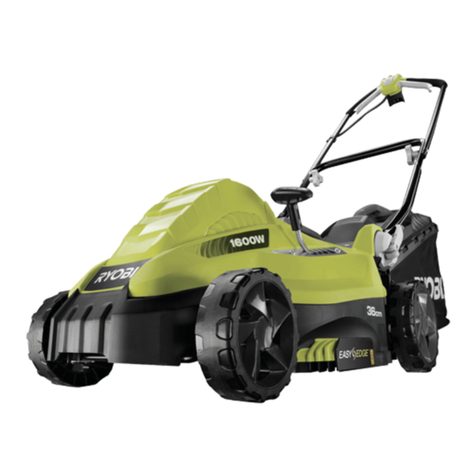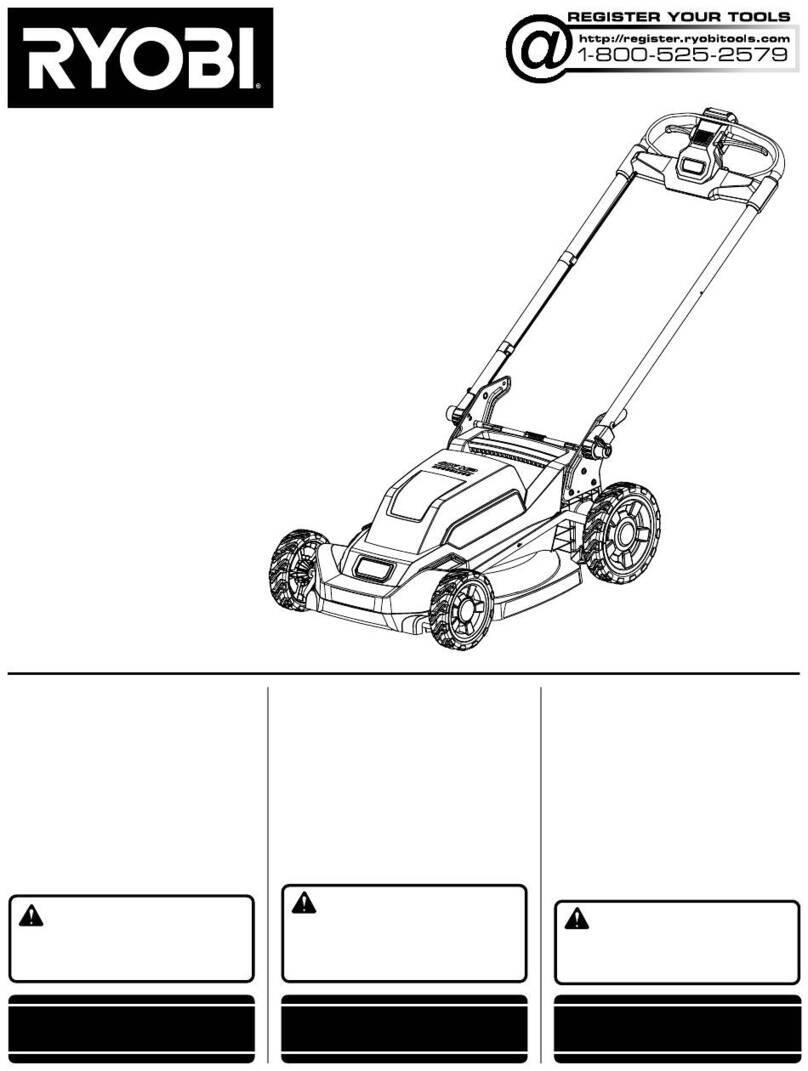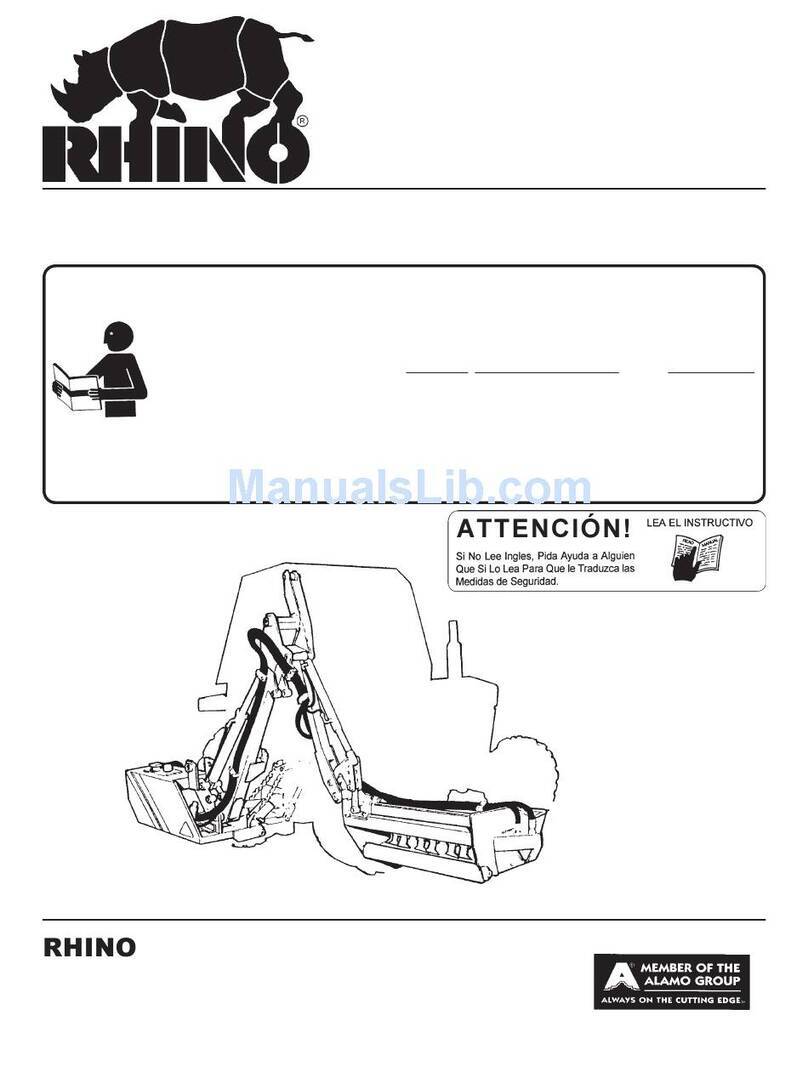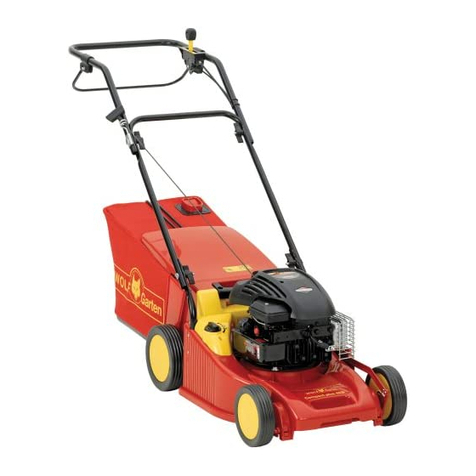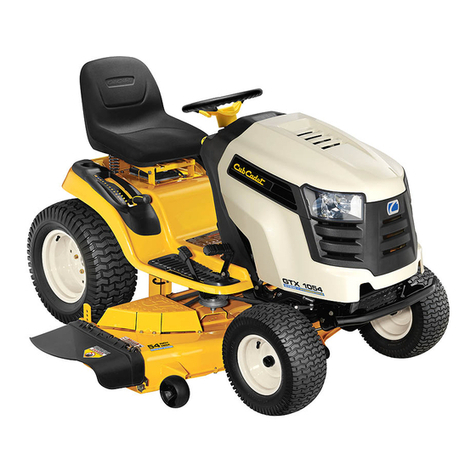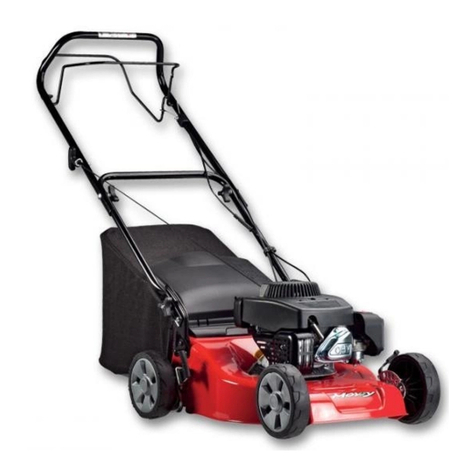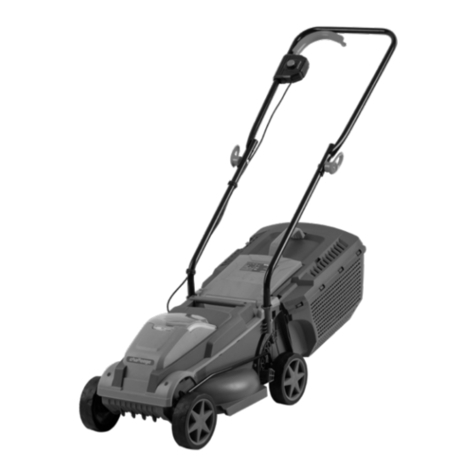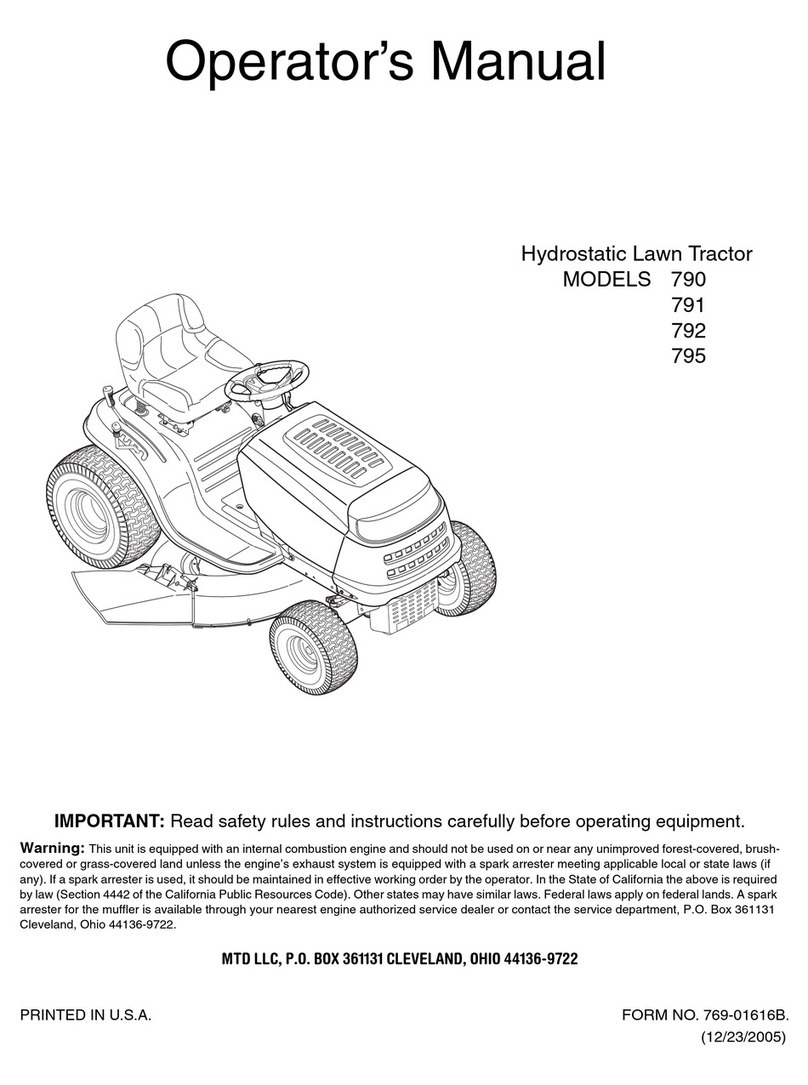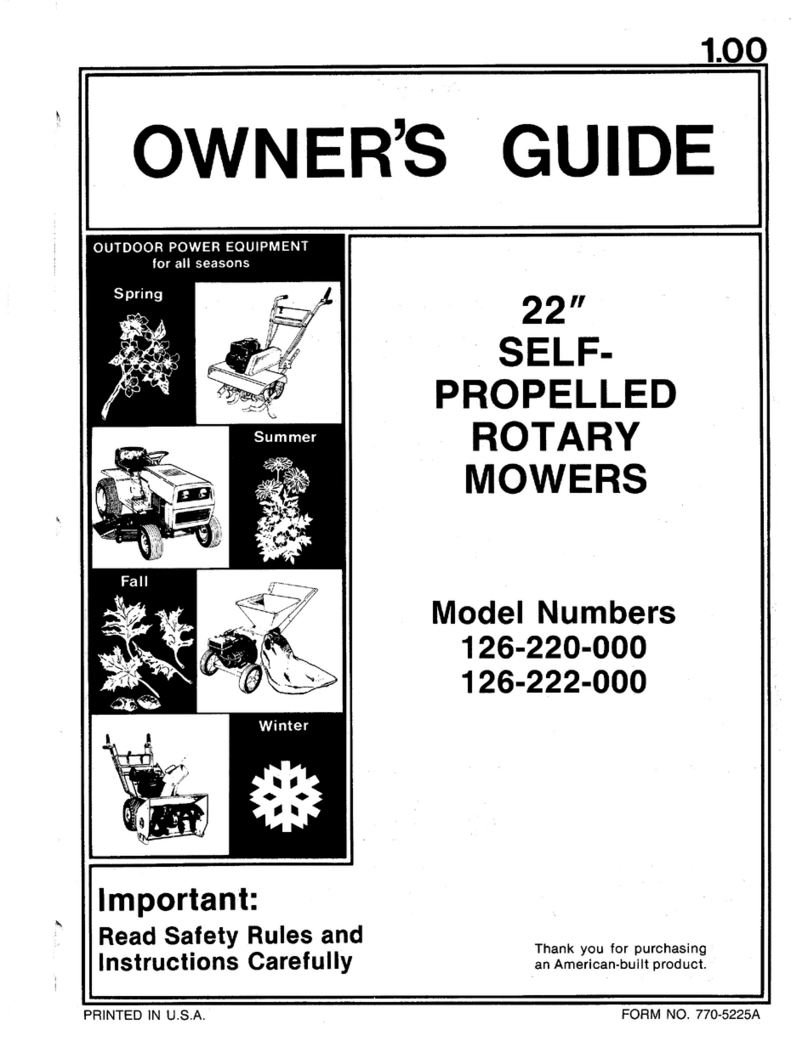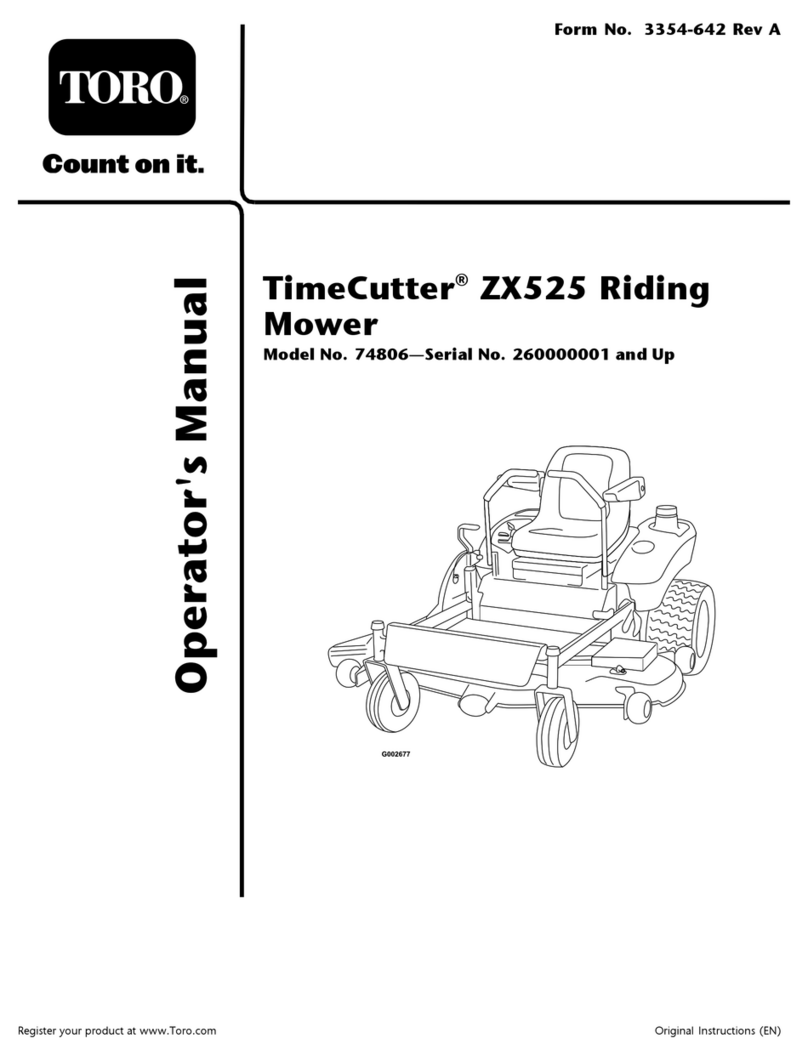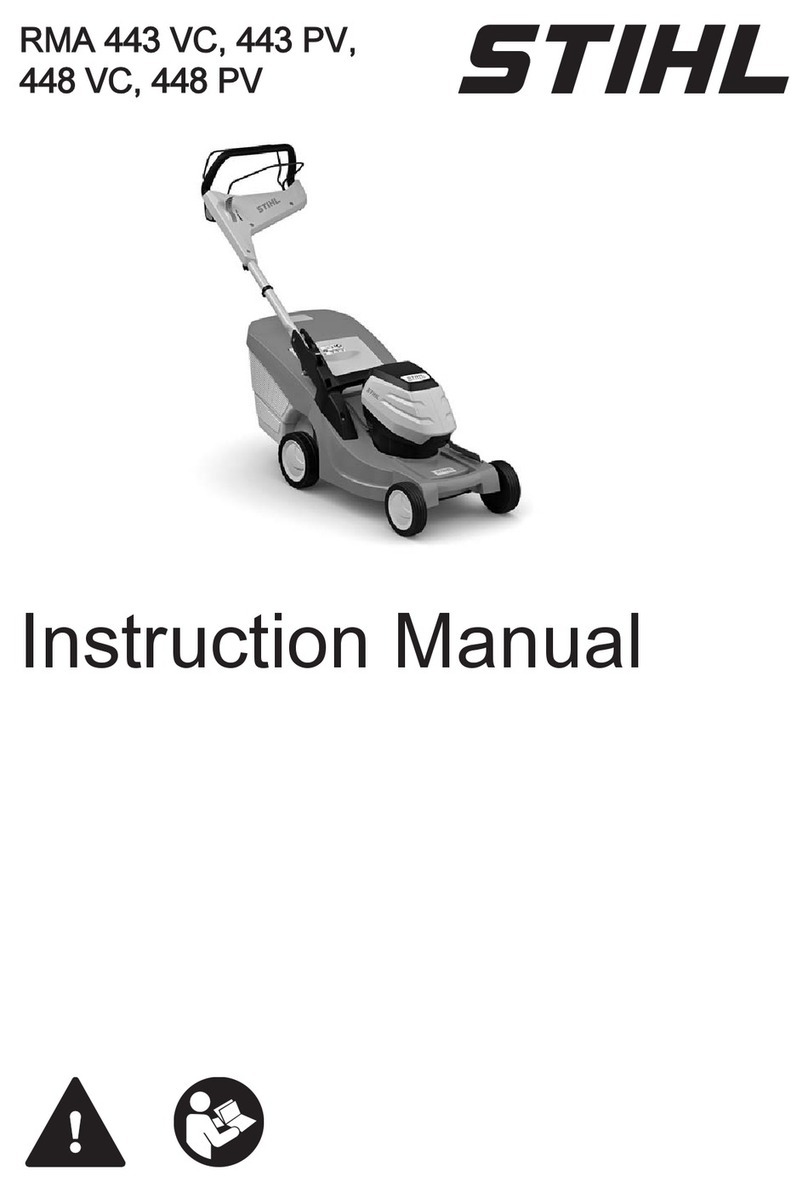
3 — English
WARNING :
When using electric gardening appliances, basic safety
precautions should always be followed to reduce the risk
of fire, electric shock and personal injury.
READ ALL INSTRUCTIONS
For safe operation, read and understand all instructions
before using this product. Follow all safety instructions.
Failure to follow all safety instructions listed below, can
result in serious personal injury.
Do not allow children or untrained individuals to use this
unit.
Check the work area before each use. Remove all objects
such as rocks, broken glass, nails, wire, or string which
can be thrown or become entangled in the machine.
Always wear eye protection with side shields marked to
comply with ANSI Z87.1. Following this rule will reduce
the risk of serious personal injury.
Use Safety Glasses – Always use face or dust mask if
operation is dusty.
Protect your lungs. Wear a face or dust mask if the
operation is dusty. Following this rule will reduce the risk
of serious personal injury.
Dress Properly – Use rubber gloves and substantial
footwear is recommended when working outdoors. Wear
heavy, long pants, long sleeves, boots, and gloves. Do
not wear loose fitting clothing or jewelry or anything that
can be caught in moving parts.
Secure long hair above shoulder level to prevent
entanglement in moving parts.
Keep children away – Keep all bystanders, children, and
pets at least 50 ft. away.
Stay alert – Watch what you are doing. Use common
sense. Do not operate this unit when you are tired,
ill, upset, or under the influence of alcohol, drugs, or
medication.
Do not operate in poor lighting.
Keep all parts of your body away from any moving part.
Do not operate power tools in explosive atmospheres,
such as in the presence of flammable liquids, gases, or
dust. Power tools create sparks which may ignite the
dust or fumes.
Do not, under any circumstance, use any attachment or
accessory on this product, which was not provided with
the product, or identified as appropriate for use with this
product in the operator’s manual.
Avoid Dangerous Environments – Don’t expose appliance
to rain or wet conditions. Water entering an appliance will
increase the risk of electric shock.
IMPORTANT SAFETY INSTRUCTIONS
Use Right Appliance – Do not use appliance for any job
except that for which it is intended.
Don’t Force Appliance – It will do the job better and with
less likelihood of a risk of injury at the rate for which it
was designed.
Do not operate the equipment while barefoot or when
wearing sandals or similar lightweight footwear. Wear
protective footwear that will protect your feet and improve
your footing on slippery surfaces.
Do not overreach – Keep firm footing and balance.
Overreaching can result in loss of balance.
Avoid accidental starting – Be sure switch trigger is in
the locked or off position before inserting battery pack.
Carrying tools with your finger on the switch trigger or
inserting the battery pack into a tool with the switch on
invites accidents.
Do not use tool if switch trigger does not turn it on or off.
Any tool that cannot be controlled with the switch trigger
is dangerous and must be repaired.
Disconnect edger – Disconnect battery pack from the
appliance before storing, servicing, or changing blade or
when not in use. Such preventive safety measures reduce
the risk of starting the tool accidentally.
Use only identical manufacturer’s replacement parts and
accessories. Use of any other parts may create a hazard
or cause product damage.
Check Damaged Parts – Before further use of the
appliance, a guard or other part that is damaged should
be carefully checked to determine that it will operate
properly and perform its function. Check for alignment
of moving parts, binding of moving parts, breakage of
parts, mounting and any other condition that may effect
its operation. A guard or other part that is damaged should
be properly repaired or replaced by an authorized service
center unless indicated elsewhere in this manual.
Keep hands and feet away from cutting area.
Make sure all guards, straps, deflectors and handles are
properly and securely attached.
Store idle appliances indoors - When not in use, edger
should be stored indoors in a dry, locked place out of the
reach of children.
Keep the air vents clean and free of debris to avoid
overheating the motor. Clean after each use.
Stop the unit and disconnect the power source when not
in use. Carry the unit with the motor stopped.
Don’t grasp the exposed cutting edges when picking up
or holding the appliance.
